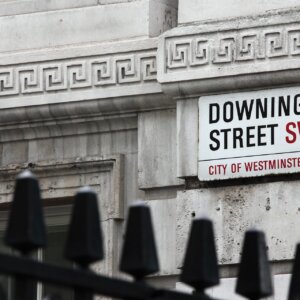Mini Budget reveals a wide range of tax cuts
What the Government classed mealy as a fiscal event was dubbed a ‘mini budget,’ apparently to avoid the Office for Budget Responsibility needing to publish its forecasts. It was however a budget in all but name, based upon the scale of tax cutting measures the Chancellor announced.
Please note that many of the measures mentioned in this article have now been reversed. You can read more about this here
Many of the announcements were expected, including the cancelation of the proposed increase in Corporation Tax, but there were surprises too, including the scrapping of the additional tax rate.
We await clarity as to whether a formal budget will follow later this year, or whether this will be pushed back to Spring 2023. In the meantime below is a summary of some of the key announcements:
Mini budget reveals the Government’s new Growth Plan
Central to the ‘Mini Budget’ unveiled by the Chancellor today, is the Government’s new Growth Plan.
The aim of the Growth Plan is to release the potential in UK economy by tackling high energy costs and inflation alongside delivering higher wages and productivity.
The Chancellor explained that by tackling energy costs, this will help to bring down inflation through backing business and helping UK households.
You can view the growth plan in full here on gov.uk
The planned increase to Corporation Tax cancelled
The Chancellor confirmed the widely expected changes to the UK’s Corporation Tax rate in his mini budget.
Under the previous conservative government’s plans, in April 2023 Corporation Tax was due to increase from 19% to 25%. This was to apply to Companies making more than £250,000 profit.
A rise in Corporation Tax would also apply to companies making between £50,000 and £250,000. Here the rate would have increased incrementally from 19% to 25%, based on the company’s profit.
The Chancellor confirmed that this increase is now cancelled. The rate will now remain at 19% for all companies, regardless of profit.
Annual Investment Allowance (AIA) to remain at £1 million permanently
The temporary Annual Investment Allowance (AIA) limit of £1 million was due to revert to its lower level of £200,000 in April 2023. The Chancellor has now confirmed that the higher £1 million limit will remain permanently.
This is good news for businesses as it provides a 100% annual capital allowance for qualifying expenditure on plant and machinery. Businesses can claim this allowance in respect of expenditure which would otherwise be eligible for writing down allowances. Please contact us if you wish to discuss how this can benefit your business.
IR35 reforms repealed in the Mini Budget
The 2017 and 2021 reforms to the IR35 off-payroll working rules will be scrapped form April 2023.
IR35 are anti-tax avoidance rules which have been in place since 2000. They are supposed to ensure that anyone effectively doing the work of an employee, pays broadly the same amount of tax.
In April 2017, the rules were amended for public sector engagements, making employers or the recruitment agency for the first time responsible for assessing the IR35 status of limited company contractors.im 2021, this was extended to include medium and large sized businesses.
The scrapping of these rules from April 2023 will place the responsibility back on the contractor.
Basic income tax rate reduction to 19% moved forward to April 2023, whilst the additional income tax rate is abolished
The reduction on the basic rate of income tax by 1% to 19% was first announced by the previous Chancellor Rishi Sunak and was scheduled to take affect from April 2024. Chancellor Kwasi Kwarteng announced that this will now be brought forward to April 2023.
The government also announced that it is removing the additional 45% rate of Income Tax, which applies to annual income above £150,000.
Both these measures will apply from 6 April 2023. The dividend additional rate is to also be removed and will align with the dividend upper rate. This is being reduced to 32.5% form the same date
Mini Budget cancels the National Insurance increase from 6 November 2022
The National Insurance rise from April 2022 and the scheduled April 2023 Health and Social Care Levy is to be cancelled following legislation to be put forward to parliament.
Whilst the increase and the Levy was aimed at raising circa £13 billion a year to fund health and social care, funding will be maintained as if it remained in place.
New Investment Zones to bring tax relief to up to 38 areas in the UK
The Chancellor announced that the Government is in discussion with 38 local authorities to establish investment zones in England.
These include Cheshire West and Chester Council, Greater Manchester Combined Authority, Lancashire County Council and Liverpool City Region.
Investment Zones are intended to drive growth and unlock housing UK wide assisted by lowering taxes and relaxing the planning frameworks, encouraging rapid development and business investment.
Designated areas in investment zone areas will allow businesses to benefit from business rates relief of 100% on newly occupied and expanded premises. The relevant local authorities will still receive 100% of the business rates growth above an agreed baseline for 25 years.
Additionally, businesses are to receive full stamp duty land tax relief on land bought for commercial or residential development as well as a zero rate for Employer National Insurance contributions on new employee earnings up to £50,270 each year.
A 100% first year enhanced capital allowance relief will also be available for plant and machinery used within designated sites alongside an accelerated Enhanced Structures and Buildings Allowance relief of 20% per year.
The Government states that it will set out further detail on the relaxed planning conditions for Investment Zones in due course.
Stamp Duty Land Tax reduced in the Mini Budget
A cut to Stamp Duty Land Tax (SDLT), making the first £250,000 of a residential sale exempt was announced by the Chancellor.
Alongside this, the level first-time buyers start to pay stamp duty is increased from £300,000 to £425,000. First-time buyers will also be able to access this relief when on the purchase of properties costing less than £625,000 as opposed to the £500,000 level.
The Government claims this will lift 200,000 homebuyers out of paying the tax altogether, each year.
The new rates effective from 14.09.2022 are as follows:
Property Value Standard Residential Rates
| Purchase Price | SDLT Rate |
| £0 – £250,000 | 0% |
| £250,000 – £925,000 | 5% |
| £925,000 – £1,500,000 | 10% |
| £1,500,000+ | 12% |
Alexander & Co – Expert business advice
For accountancy and taxation advice to help your business, Alexander & Co can assist you. From providing advice on R&D tax credits for innovation and investment, through to business restructuring and advice on becoming more tax efficient, our corporate advisors are on hand to ensure you receive expert advice.
To discuss our services and how we can assist your business, please fill in the form below, call us on 0161 832 4841 or email info@alexander.co.uk





